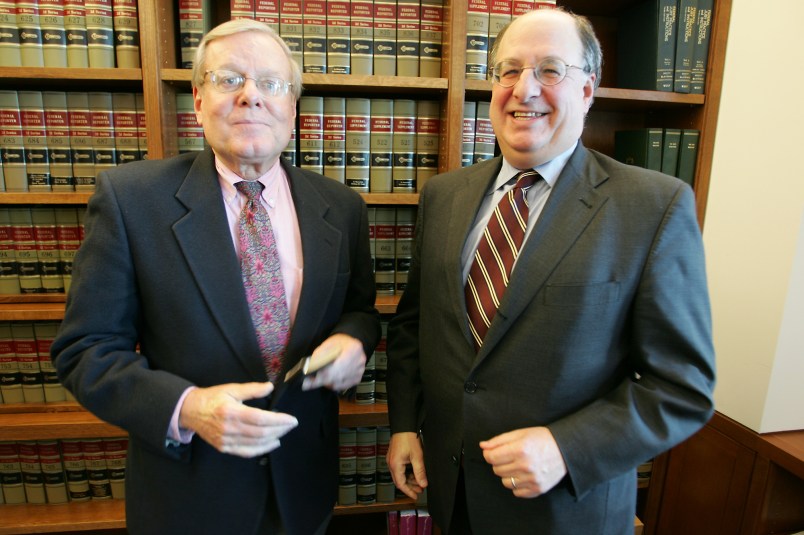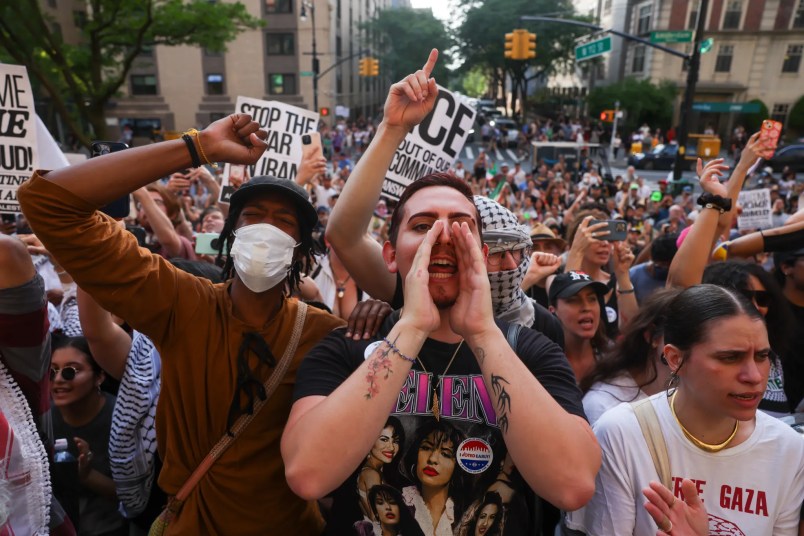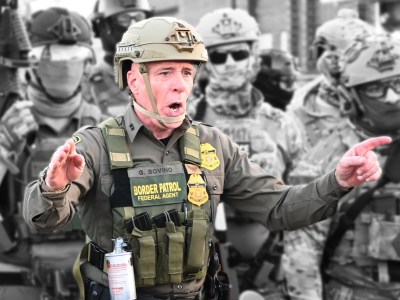At least one judge gets it.
U.S. District Judge William Young for the District of Massachusetts, a Ronald Reagan appointee, accused the Trump administration in a lengthy opinion on Tuesday of a sweeping campaign to curtail political freedoms in the United States. It extends from attacks on law firms, to ICE agents making themselves unidentifiable through mask-wearing, to the ostensible subject of Young’s opinion: targeting non-citizens for deportation based on their pro-Palestine activism. All of it, Young wrote, hinges on the belief that Americans are too divided to defend attacks on liberties that apply to everyone.
Young ruled in the 161-page opinion that the Trump administration had violated the First Amendment by selectively deporting non-citizens over their pro-Palestine activism. The judge sided with several university associations that brought the suit claiming that the removals were part of a coordinated campaign to suppress dissent, violating free speech rights that extend to non-citizens.
The opinion provides a detailed description of how the immigration system works, and how the Trump administration, during its first months in office, twisted it into an instrument of ideological suppression. It’s a compelling read, and one which places high-profile detentions like those of Mahmoud Khalil and Rumeysa Ozturk within the administration’s attempt to unilaterally make a systematic change to how immigration laws are enforced. One early executive order, Young wrote, “blend[ed] legally protected speech and unprotected speech” around anti-Semitism. That, he added later, allowed the administration to stage a “full-throated assault on the First Amendment across the board under the cover of an unconstitutionally broad definition of Anti-Semitism.”

That then resulted in civil servants who had dedicated their careers to nonpartisan government work finding themselves caught in a paradox, Young wrote. To keep doing their jobs, they had to follow the dictates of Trump political appointees interested in staging a campaign against dissent. As Young phrased it, that meant they had been “weaponized by their highest superiors to reach foregone conclusions for most ignoble ends.”
The number of non-citizens targeted for pro-Palestine activism or criticism of Israel is relatively small amid the administration’s broader mass deportation efforts and crackdowns on disfavored views. But the attack is of a piece for the Trump administration: many of the actions that lead to the fiercest criticism from civil liberties advocates are either small in scale or legally dubious. A recent, non-immigration-related executive order declaring Antifa a “terrorist organization” was met with derision in part because, even if “Antifa” existed as a formal entity, there’s no means in American law to declare a domestic group a terrorist organization.
To Young, those debates around scale or legal viability miss the point.
The intent, he wrote, is to use the cases of “a few” who are “speaking out” to set an example for the rest, thereby “terrorizing similarly situated non-citizen (and other) pro-Palestinians into silence because their views were unwelcome.”
At times, the opinion veers into Young’s own somewhat florid views of what he cast as old-fashioned American values. ICE officers have taken to shielding their identities by wearing masks, the judge wrote. “Can you imagine a masked marine? It is a matter of honor — and honor still matters.”
But even that, he wrote, isn’t targeted at non-citizens: “ICE goes masked for a single reason — to terrorize Americans into quiescence.”
It all underlines what the opinion casts as the fundamental gamble of the Trump administration: The rights that the White House has attacked over the past eight months apply regardless of political views; curtailing them equally affects everyone, including non-citizens residing in the U.S.
The Trump administration has not cast its exercise of power that way. Rather, it has portrayed these efforts either as a means to attack domestic political opponents, often framed as retribution against the left, or as necessary for national security. To Young, that’s a basic act of deception: lulling those who are not the immediate targets of these actions “into thinking their own personal interests are not affected.”





